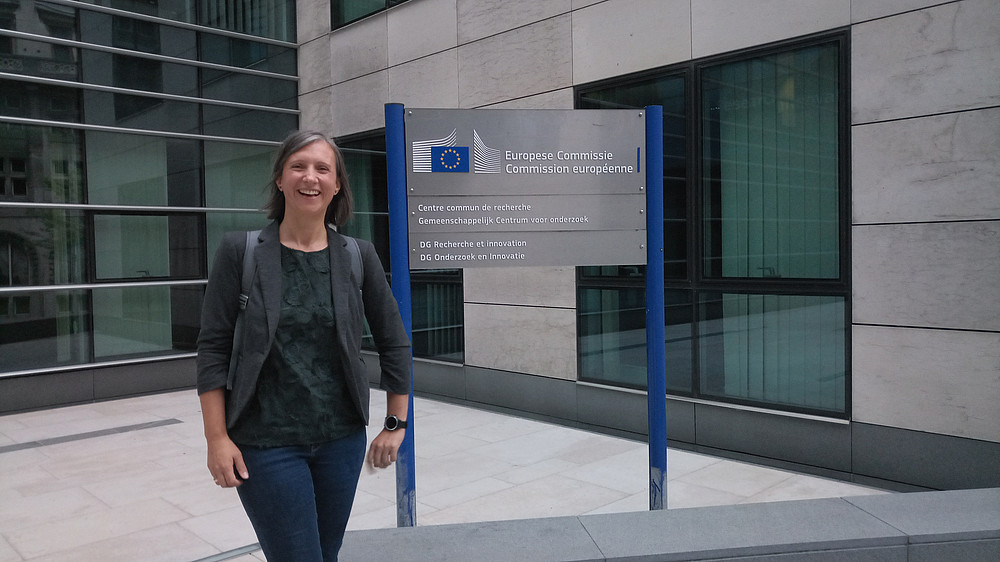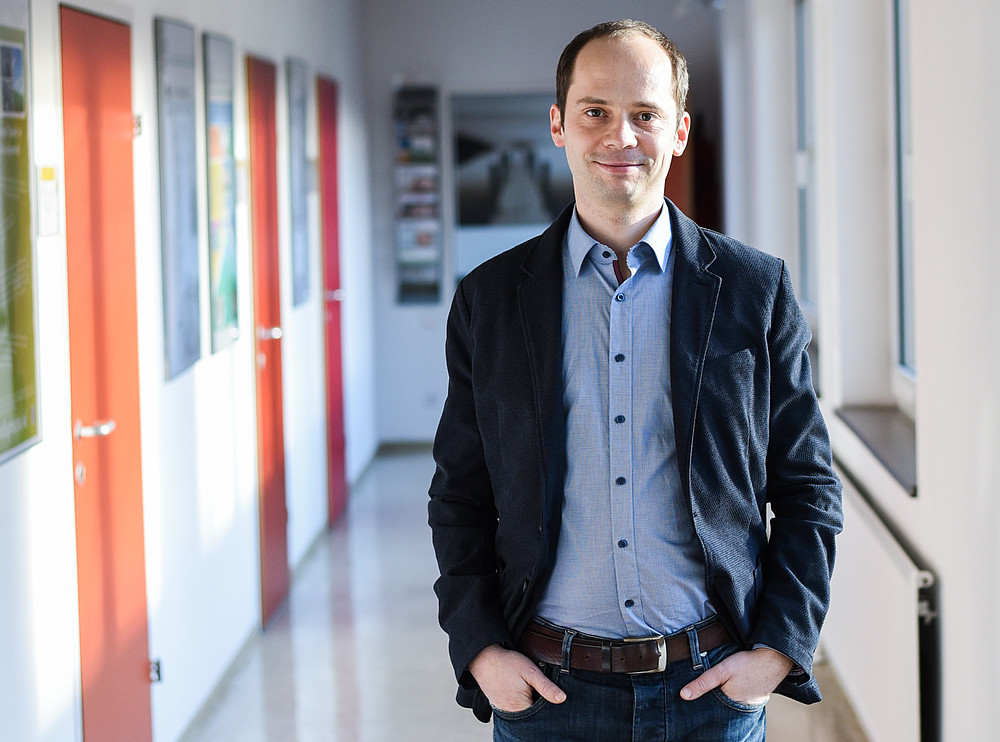
What exactly does a professor of innovation and transition research deal with?
With innovations (technologies, products, behaviors) of all kinds and how they could change our society and make it more sustainable. In particular, I am interested in biomass and everything that can be made from it. The available amount is limited, but the theoretical possibilities are almost unlimited.
What aspect of your work do you find particularly rewarding?
Working with intelligent, young people on socially highly relevant and current topics, and being free and independent at the same time. For me, it is an absolute privilege to be able to do this work.
What is the funniest thing that has happened to you in the teaching room so far?
The funniest thing was that in the dissertation seminar I was mistaken for a dissertation student when I was new in Graz.
What exactly do you do at the Department of Environmental Systems Sciences?
My tasks as an department officer include the coordination and administration of course planning, personnel matters, the institute's budget and third-party funding, and the handling of other administrative tasks related to research and teaching. I also support the department management in all organizational and administrative matters.
What do you like best about your daily work?
What I like best are the varied activities and the cooperation with committed colleagues and students. Furthermore, I appreciate the excellent atmosphere and the cooperation at the department.
What do you find particularly enriching about your work?
In addition to the many positive, enriching encounters with kind and motivated people, being part of an department that deals with one of the most important and current topics of our time is a great enrichment for me!
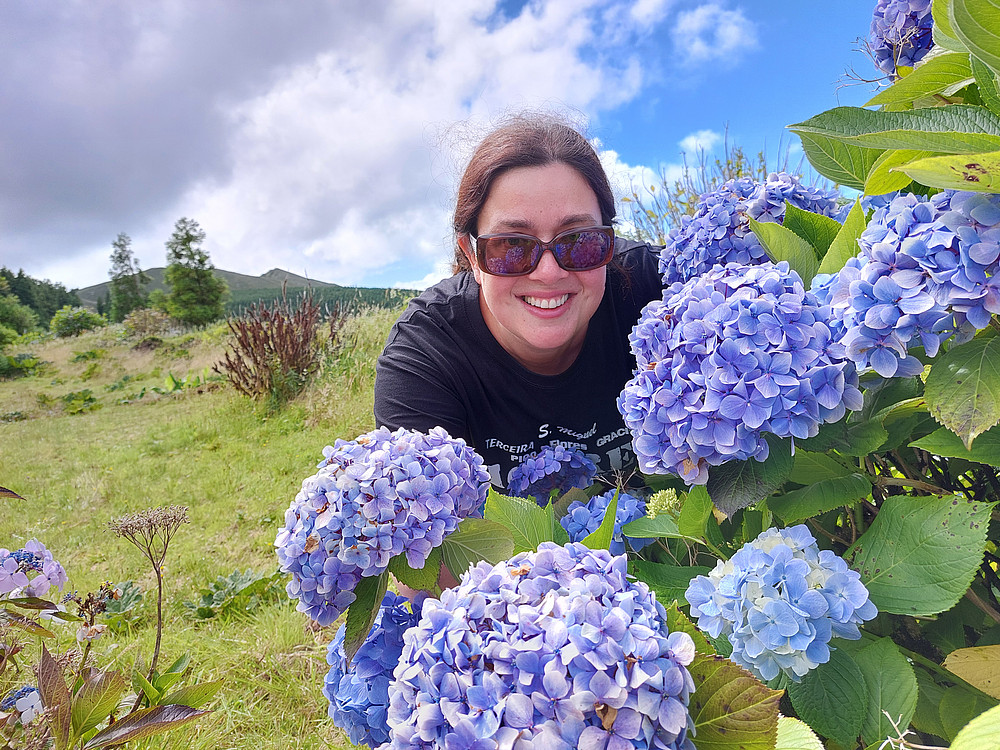
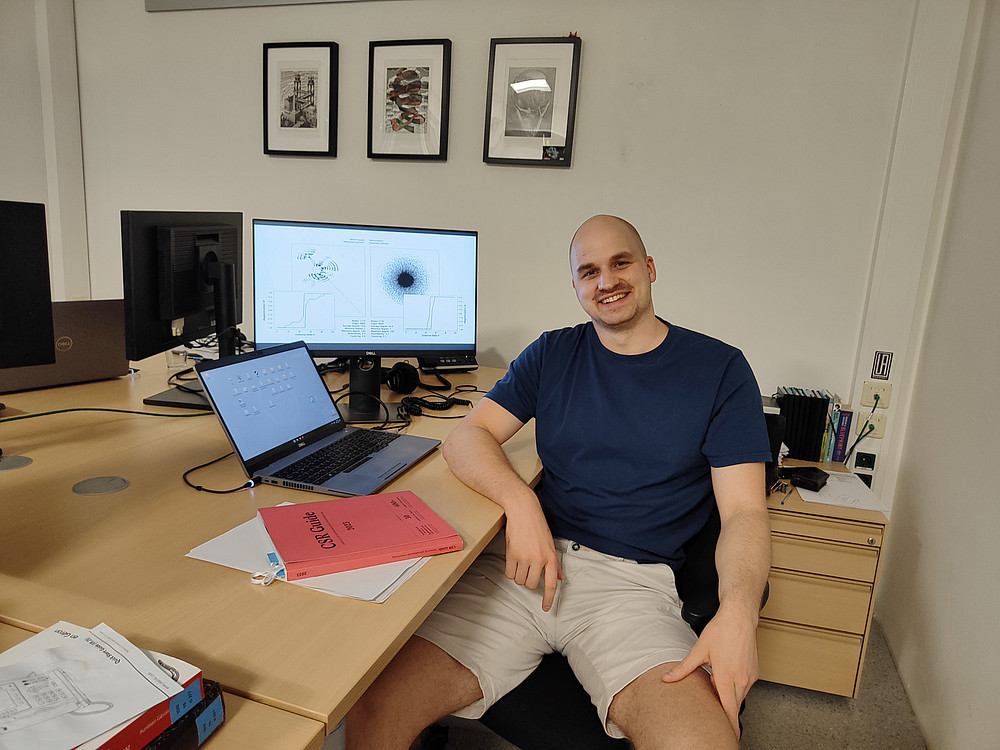
Why did you decide on this doctoral program in particular?
My first involvement with Environmental Systems Sciences and at the same time the beginning of my enthusiasm for it is due to a reading by Dietrich Dörner with the exciting title "The Logic of Failure". In his book, Dörner describes why we fail so easily when dealing with complex systems. Dörner's examples of failure awakened in me a desire for a deeper understanding of systems. Through my doctoral studies at Institute of Environmental Systems Sciences, I was able to pursue this desire.
What was your favorite course?
The dissertation seminars of the interfaculty initiative COLIBRI (Complexity of Life in Basic Research and Innovation) were particularly formative for me. In these seminars, many different disciplines come together, and you benefit from the broad expertise of your fellow students and professors.
What do you particularly like about the Department of Environmental Systems Sciences?
Current environmental systems are the focus of research here, and the methods of systems science are excellently suited to studying these environmental systems. This combination of theory and practical relevance distinguishes the institute for me.
Klaudia Kramer
Consultant in the Coordination Office for Environmental Systems Sciences and Global Studies
What do you actually do in the coordination office?
My tasks are very diverse in nature and wide-ranging. Together with my colleague, I plan teaching for the Institute of Environmental Systems Sciences and Global Studies. Support our lecturers in teaching and in the handling of exams. Another focus is the administrative support of our students. I attach great importance to good advising so that our students are in good hands with us.
Furthermore, I support the curricula commissions for ESS and GS. Besides the "normal" day-to-day business, I also maintain the websites of Global Studies and Environmental Systems Sciences.
What's the funniest thing you've experienced in the process so far?
There are many funny moments in the coordination office, which I will not tell you here ;)
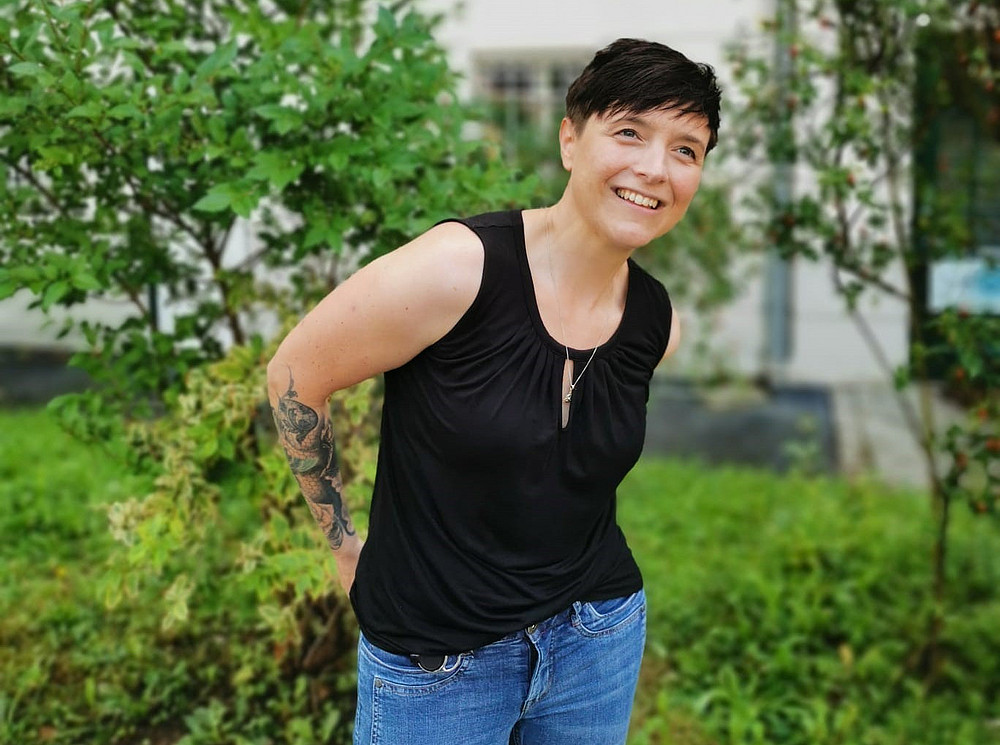
What do you like most about your work?
The close and good cooperation with my colleagues at the department. Although we have grown a lot in recent years, we can proudly say that we have a great working environment and nice colleagues. I also love new challenges and approach new tasks with a zest for action. The work at the institute and in the coordination office is very varied, which I really like. It never gets boring!
What exactly are you working on?
I am employed for the Horizon Europe project FREE4LIB (Feasible Recovery of critical raw materials through a new circular Ecosystem FOR a Li-Ion Battery cross-value chain in Europe) and am working on a digital product passport concept, which should simplify the data exchange between manufacturing and end-of-life of Li-Ion batteries. In addition, various end-of-life scenarios are being subjected to a social life cycle analysis in order to make the process steps to be developed as humane as possible.
What do you find fascinating about your research area?
With my background in industrial engineering, I am very excited to work on a technical project. Batteries, as a form of energy storage, are a future technology and there are still many research opportunities here, especially in the area of recycling. I love the interdisciplinarity and holistic view of the life cycle analysis and input output analysis methods. Additionally, I am motivated by the aspect of advocating for good working conditions and human rights through my work.
What do you like most about your work?
The international cooperation in the project.
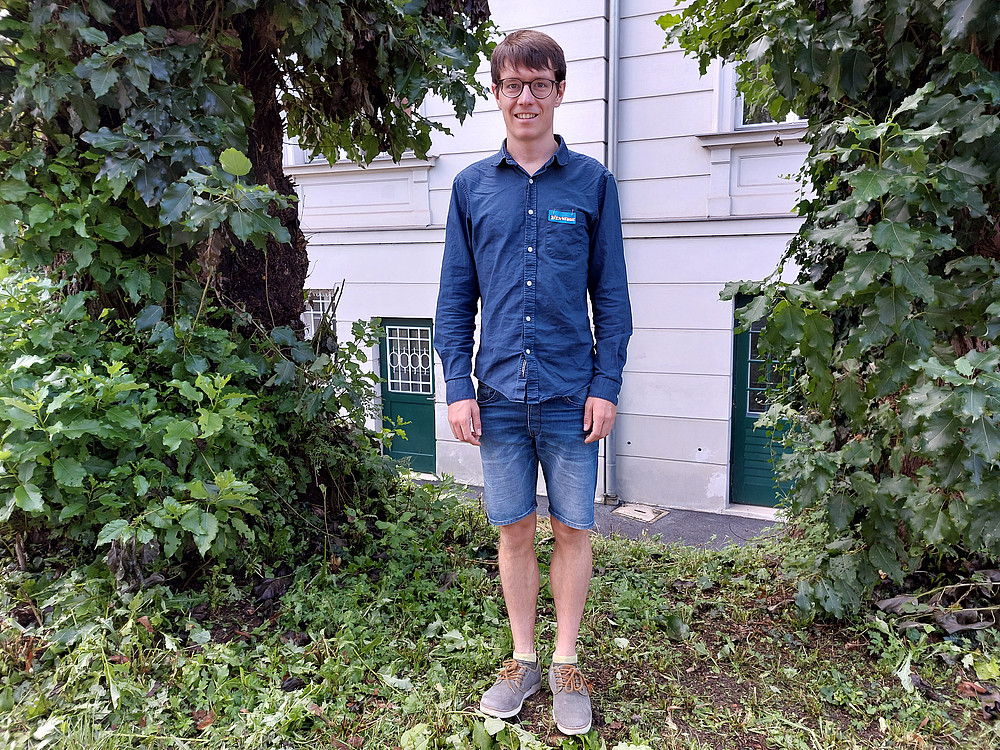
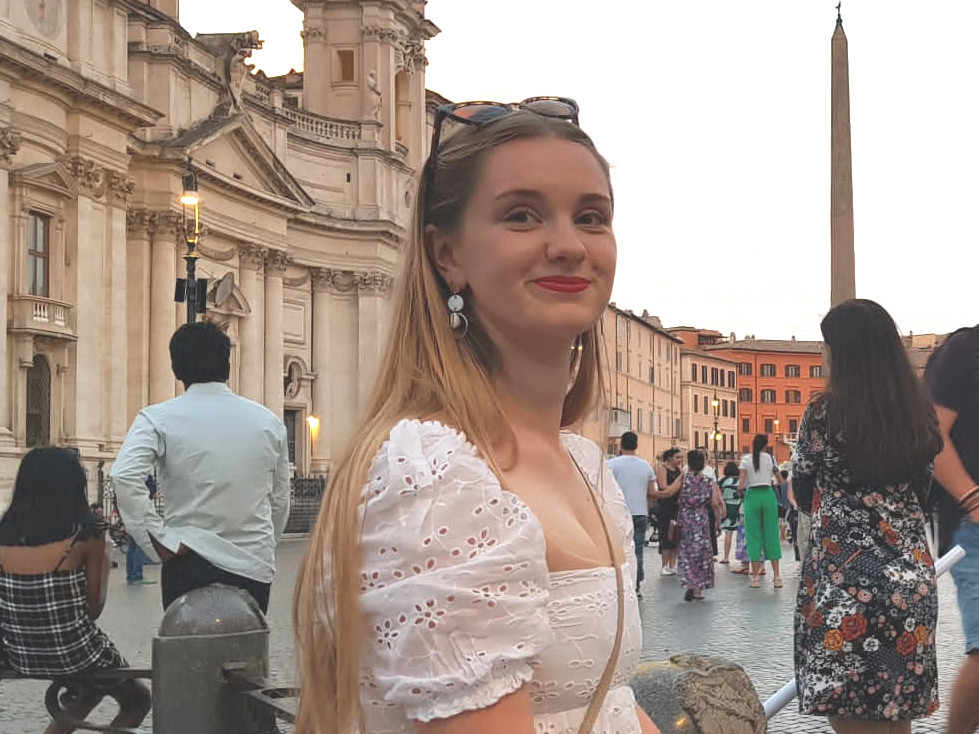
Why did you decide to study this subject in particular?
The threat of climate change was already very much on my mind before I started studying. That's why I wanted to learn more about global warming and possible solutions. The connections between people and the environment, and especially the application in business, were also decisive factors in choosing this course of study.
What surprised or excited you the most during your studies?
I was enthusiastic about the wide range of courses that provide students with good basic knowledge and broad knowledge. The possibility of the UoWf also allows everyone to dedicate themselves to a specialization of their choice, which makes the studies very individual.
What do you like most about the Department of Environmental Systems Sciences?
The quick help with all problems through the KoBü and also the proximity to the professors makes the department a special place for me, which makes studying very easy.
Claudia Mair-Bauernfeind
Researchers and educators focusing on sustainability assessment of wood-based product systems.
What does someone who is involved in sustainability assessment actually do and why is it important at all?
Researching the topic of sustainability assessment means finding out which indicators and methods can be used to measure the sustainability of products/services and also companies.
What is the fascination of your research field for you?
Being able to work on a highly topical subject day after day.
What are the most common misconceptions about the sustainability assessment of wood-based product systems? exist?
Compared to other resources such as oil or ores, wood grows back and is therefore automatically perceived as a more sustainable material. That wood is renewable is of course true, whether it is actually more sustainable than other materials depends on the application. For example, a car produces a significant proportion of its emissions during use, which is partly due to the weight of the vehicle. If wood were to be used in vehicle construction, this would mean that the component would have to weigh less than the status quo in order to be ecologically sustainable.
